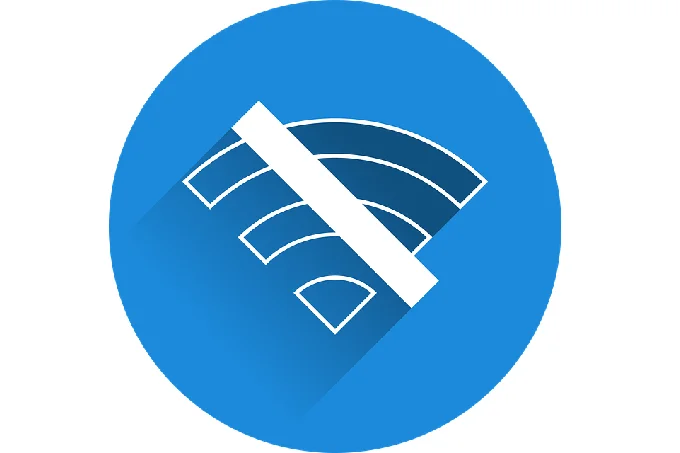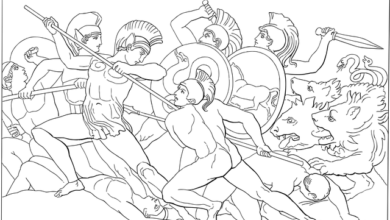Why do Africa leaders block the internet and why do they do it?

Out of one hundred and fifty-five cases of interference, there were twenty-eight complete blocks of Internet connection, up 233% from 2017. Nine of these occurred in sub-Saharan Africa. What sets the African model apart from the rest of the world is the fact that restrictions on Internet access, generally confined to cities, provinces, or regions, more frequently involve entire countries.
According to the latest annual report of the Access Now agency, in 2020, there were one hundred and fifty-five cases of government interference in Internet access, distributed in twenty-nine countries around the world. Sub-Saharan Africa held the record as the region where the greatest number of states imposed restrictions on the Internet: Burundi, Chad, Ethiopia, Guinea, Kenya, Mali, Sudan, Tanzania, Togo, and Uganda.
In the year of the pandemic and social restrictions, the fallout from this phenomenon has been particularly critical. Connecting to the internet with one’s smartphone meant having access to vital information to prevent contagion, continuing to work, maintaining social relations, receiving an education, and mobilizing for a political cause. In this context, depriving entire populations of access to the internet has produced disastrous results not only economically but also politically and socially.
What is Internet blocking?
Adopting the definition coined by RightsCon, one can explain ‘Internet blocking’ as a voluntary interruption of electronic and digital communication systems rendered inaccessible or effectively unusable by a specific population or within a specific geographic area.
Internet blockades are considered an extension of traditional censorship implemented by authoritarian states in order to control digital interactions and prevent the formation of contention on the Web.
According to a report by the Ugandan study center CIPESA (Collaboration on International ICT Policy in East and Southern Africa), there is a significant correlation between the type of political regime and the incidence of Internet blocks.
From 2014 to 2019, 77% of African states that blocked access to the network were classified as “authoritarian regimes” based on the Economist Intelligence Unit’s Democracy Index.
However, the remaining percentage shows that this phenomenon is not exclusive to authoritarian regimes: “hybrid regimes” and “imperfect democracies,” such as Ethiopia and South Africa, have also chosen to curb, obstruct, or completely block the flow of digital data.
These blockages most often occur at times when executive power is at its most vulnerable: major popular protests, civil strife, and electoral appointments.
According to data collected by Tina Freyburg and Lisa Garbe, between 2015 and 2016, half of the elections held in sub-Saharan Africa were accompanied by an internet connection blockade.
Moreover, these measures are more frequent where the regulatory framework is outdated, lacks transparency, and where, in the regional and international context, state interference in the digital world is not explicitly condemned.
Controlling Providers
The determining factor for the success of an Internet blockade lies in the ability of the State to exercise control over the network infrastructure and the providers: the Internet Service Providers (ISPs). Here two scenarios open up. On the one hand, there are countries, such as Ethiopia and Eritrea, where the government exercises absolute control over the provision of Internet services. The only players in the market are the state-owned companies, which can easily and quickly block the access ports to the network.
In the second scenario, the landscape of Internet network operators is more diverse, cohabiting public and private entities, as in Nigeria and South Africa. Here, imposing a complete blockade of the Net proves to be a more time-consuming and complicated procedure. In these cases, provider obedience is achieved through the threat of non-renewal or withdrawal of the license and creating a hostile business climate.
A recent example of such government pressure can be found in Uganda. On January 13, 2021, the two largest private Internet service providers, Mobile Telephone Networks (MTN) and Airtel Uganda, received a notice from the Ugandan Communications Commission. As of the evening of that same day, the government intimated that they would block all access points to the network, “until otherwise notified”.
There were less than twenty-four hours to go before the elections that would have confirmed incumbent President Museveni in power for a sixth consecutive term. On the day of the elections, as observed by the Netblocks monitoring center, the connectivity index in the country dropped dramatically.
Not only blocking internet access
Applying a complete Internet blockade to a province, a region, or the State’s entire territory is an extremely costly act in both economic and social terms. Since this measure affects a large number of people indiscriminately, it can also be politically counterproductive.
By blocking access to the internet, the government damages the economy of the State. According to a report on the effects of Internet blockades produced by Top10VPN, these measures cost sub-Saharan economies over $2 billion in 2019.
Because of this, governments have been refining less expensive and overt censorship tools in recent years. This means that it is not always clear whether access to a certain site is deliberately hindered or, instead, whether the problem is due to the poor quality of the network infrastructure.
At the first level, we find practices that do not aim so much to prevent as to discourage the use of the internet, such as throttling, the ‘strangling’ of data traffic, or ‘Internet slowdown’. The second level includes more invasive measures: access blocks to specific apps, URL-based blocking, and social media shutdown.
In some countries, using the internet has become almost impossible without the help of a Virtual Private Network (VPN). These tools are able to hide the address of the device with which you connect to the network, thus circumventing the restrictions imposed by the States.
Why do African leaders block network?
The reasons that afterward are brought to justify a blocking of the network – when they are presented – essentially gravitate around the principle of national security. Authoritarian regimes know the subversive potential of the internet and social media in particular. These spaces can fuel anti-government protests, organize dissident groups, spread a critical view of authority, and circulate news unwelcome to the government. The Arab Springs remind these states that they cannot afford to underestimate the network.
Nonetheless, there is no evidence to suggest that Internet blockades actually serve to provide greater security and stability to the government.
On the contrary, according to the study published in 2020 by Jan Rydzak, Moses Karanja, and Nicholas Opiyo, not only are Internet blockades ineffective in containing threats to the established order, but they often prove counterproductive. Instead of stifling protests, they galvanize them, prompting people to organize to advance the cause physically.
This is what happened in Ethiopia, where, in 2020 alone, the government of Abiy Ahmed imposed four Internet blockades. The most serious episode occurred in June 2020, when the famous Oromo singer and activist Hachalu Hundessa was killed in the capital Addis Ababa.
Popular protests prompted the government of Abiy Ahmed to impose a three-week national Internet blockade, which affected no less than one hundred million people. This decision, taken in a context of high instability and conflict, has had no other effect than to exacerbate the social tensions that still afflict the country.
International pressures
In recent years, the issue has been brought to the attention of several regional and international organizations. First in July 2012, and then in June 2014, the United Nations Human Rights Council sanctioned the application of the principles of protection, promotion, and enjoyment of human rights to the digital world. In 2016, the Council issued its first resolution condemning Internet blockades.
Access to an Internet connection is thus for all intents and purposes recognized as an inalienable right of a human being. Actions that deprive or restrict access to the network are considered acts contrary to human rights, which must therefore be sanctioned.
At the regional level, in 2020, the Court of Justice of the Economic Community of West African States (ECOWAS) found the government of Togo guilty of blocking the internet imposed in September 2017, during large popular protests. The court ordered the Gnassingbé regime to pay compensation of two million CFA francs, as well as a guarantee that all necessary measures will be taken to preserve citizens’ right to free expression.
Last April, the issue of digital rights was the focus of the 68th session of the African Commission on Human and People’s Rights. Awareness of the magnitude of the problem was considered the first step in consolidating an international approach of condemnation towards those who violate digital freedoms.




